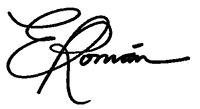Dear Colleagues,
As a queer woman of color, I celebrate the start of Pride month in the U.S. as part my community’s legacy of struggle against systemic oppression of our existence and ability to live and love freely.
The beginnings of what we now know as Gay Pride month can be traced to the Stonewall Riots, a series of spontaneous demonstrations by members of the LGBTQ+ community in response to a police raid that began in the early morning hours of June 28, 1969, at the Stonewall Inn in the Greenwich Village neighborhood of Manhattan, New York City. But the history of Pride is not just about one night of protests in one location. It’s also about queer activism and uprisings against police brutality across the country – and across the world – from the ’50s and beyond.
While there is much to honor, there is still so much more to do. More than one in four (27%) trans young people have attempted suicide and nine in ten (89%) have thought about it. Many U.S. states still lack fundamental human rights protections for LGBTQIA people, and violence continues to rise against transgender women of color and those who do not fit neatly into sex or gender norms. To do better, we know that nuance matters. Language matters.
That’s why over the past year, the Women’s Funding Network has intentionally used the phrase “marginalized gender/s” rather than simply “women and girls” when talking about our alliance and mission.
We cannot build a more equitable and just society when we start with a false binary. Shifting power to those most marginalized in our world includes centering the voices of sexual and gender minorities in communities of color. We must name it to undo it.
Thank you for joining us in celebrating activists like Sylvia Rivera and Marsha P. Johnson who demanded radical structural change in the face of continued oppression.
Thank you for all you do in seeking to challenge and change the narrative of who deserves human rights, equality, and justice in countries across the globe. To learn more about the intersections of gender and racial justice in the LBGTQIA community, please visit our CHANGE coalition partner, Funders for LBGTQ Issues.
In solidarity,

Elizabeth Barajas-Román
Women’s Funding Network
President & CEO